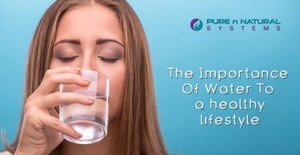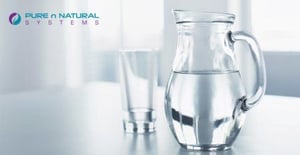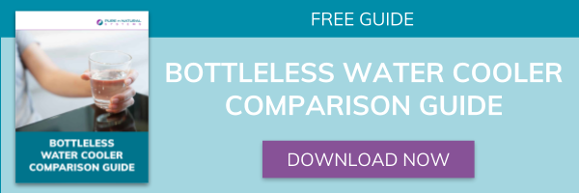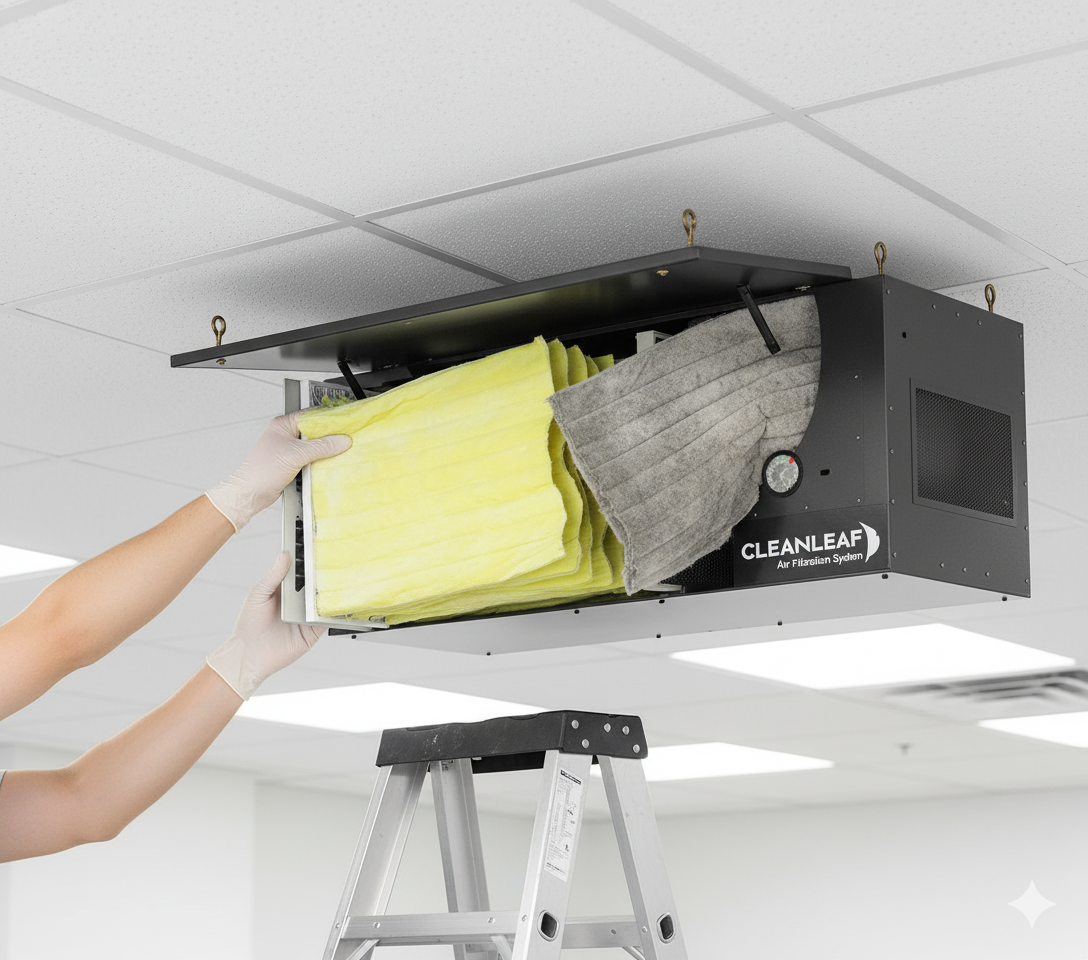 Because water is so basic and fundamental to human life and most of us drink it every day, it can be easy not to think about it. Just turn on your tap and it comes out. Some people fail to consider how important to optimal health getting enough water can be — the old adage goes that a minimum of eight glasses of water each day should keep healthy and hydrated. Water contains no calories, sugar, artificial sweeteners or sodium and, with proper intake, you can get better sleep, clearer skin and faster metabolism.
Because water is so basic and fundamental to human life and most of us drink it every day, it can be easy not to think about it. Just turn on your tap and it comes out. Some people fail to consider how important to optimal health getting enough water can be — the old adage goes that a minimum of eight glasses of water each day should keep healthy and hydrated. Water contains no calories, sugar, artificial sweeteners or sodium and, with proper intake, you can get better sleep, clearer skin and faster metabolism.
The benefits are mostly well known, but how do you know if you have safe drinking water? And, if you find out you don't, what can you do? You can improve the quality of your water with different water filter types. Learn how to test water quality and ensure you have access to safe, refreshing — and necessary — H20.
Drinking unfiltered tap water can lead to several health issues over time. Here's what you need to know:
Chemical Contaminants
-
Disinfection Byproducts (DBPs): When chlorine is used to treat water, it can react with natural materials to form harmful byproducts like trihalomethanes (THMs) and haloacetic acids (HAAs). Studies have linked long-term exposure to these byproducts to an increased risk of bladder and colorectal cancers. Source: nypost.com
-
"Forever Chemicals" (PFAS): These man-made chemicals persist in the environment and have been found in various water supplies. High levels of PFAS exposure may lead to health issues such as higher cholesterol levels, changes in liver enzymes, decreased vaccine response in children, and increased risk of high blood pressure or certain cancers. Source: cdc.gov
Biological Contaminants
- Pathogens: Even treated water can sometimes harbor harmful microorganisms like Giardia or Cryptosporidium. Consuming water contaminated with these pathogens can cause severe gastrointestinal problems, including diarrhea and stomach cramps. Source: en.wikipedia.org
Mineral Considerations
- Demineralized Water: Processes like reverse osmosis remove impurities from water but also strip away beneficial minerals. Drinking demineralized water over long periods might lead to mineral deficiencies if these minerals aren't adequately replaced through diet.
Other Considerations
-
Heavy Metals: Aging plumbing systems can leach metals like lead into tap water. Prolonged exposure to heavy metals is associated with various health problems, including neurological and developmental issues. source: hsc.unm.edu
-
Chlorine Effects: While chlorine is essential for disinfecting water, its presence can lead to dry skin and brittle hair over time.
Protecting Your Health
To reduce these risks:
-
Regular Water Testing: Especially if you rely on private wells or live in areas with known water quality issues, periodic testing can identify contaminants.
-
Use Appropriate Filtration: Installing filters certified to remove specific contaminants, such as granular activated carbon filters for THMs and HAAs, can improve water safety. Source: foodandwine.com
-
Stay Informed: Keep up-to-date with local water quality reports and any advisories issued by health or environmental agencies.
By taking these steps, you can help ensure the water you consume is safe and healthy.
How to Test Water Quality
Do you know what’s in your drinking water? The majority of people in the United States get their drinking water from public systems, and those who don't get it from wells. No matter how the drinking water comes into your home, it’s a good idea to get it tested regularly.
According to the Centers for Disease Control, the U.S. boasts one of the safest drinking water systems globally, however, an estimated 4 to 32 million cases of acute gastrointestinal illness occur each year from public water systems. Other problems that could occur related to drinking water include e coli outbreaks, excess fluoride, copper in the water supply, salmonella and contamination from agricultural or industrial pollution.
The quality of your drinking water is easy to test. You can purchase products online — such as this Total Dissolved Water Tester on Amazon — to measure the level of total dissolved solids (TDS) in your water. If your TDS meter shows that the water contains more than 150 TDS per million, it should not be consumed at all. Some water in the United States has been found to contain TDS at levels of 700 parts per million! Even bottled water marketed as filtered often contains levels above 200 and 300 ppm.
Another option to test your water quality is to hire a certified lab to do so. If you have well water, the EPA recommends testing it annually for total coliform bacteria, nitrates, TDS and pH levels, as well as other contaminants.
Why Invest In a High Quality Water Filter?
Water purification is needed to get the maximum health benefits. In-home water filtration systems include units that fit directly on the tap or large units that are housed in a basement and filter the house's entire system. You can also get filters that integrate with your fridge water dispenser to filter drinking water and even ice cubes.
Bottleless water coolers — countertop or free-standing units — are another option for safe drinking water. Going bottleless also means no cumbersome, space-hogging jugs. However, installing a tap or whole-house water filter system will ensure that you also have access to clean water for cooking and bathing. Water softening filtration systems will help ensure your appliances run efficiently and last longer to boot! The means saving you money in the long run.
Do you like the way your water tastes? Even if your home water supply is safe, it could still have an unpleasant taste or odor due to mineral content, your pipes or chlorine, which is added to public drinking water to help control microorganisms. Water filtration helps eliminate any fishy, earthy or other unpleasant odors and tastes — which will ensure you drink more of it!
Tips for Staying Hydrated
In addition to investing in a high quality water cooler and ensuring that you are only putting the best water into your body, try the following tips to help ensure you stay hydrated and healthy. Once you have access to a high quality source of everyday drinking water, make sure you:
1. Start your day with water
Start every day with drinking water. Adding a little bit of lemon in order to make the water more alkaline works wonders, especially if you don't prefer the taste of plain water.
 2 Drink at least eight glasses of water a day
2 Drink at least eight glasses of water a day
Aim to drink at least eight glasses of water every day. You can also try drinking the same amount of ounces as your weight. For example, if you weigh 170 pounds, then you would have to consume 170 ounces of water daily.
3. Avoid dehydrating beverages
Limit your consumption of beverages with sugar, caffeine or alcohol, all of which can cause dehydration. Read labels so you’re aware of ingredients and always try and avoid drinks with additives.
4. Drink before you're thirsty
Make a a habit of drinking water at regular intervals and don't wait until you’re thirsty. The signs of thirst mean you're already dehydrated and your body needs water immediately. To dehydration, keep a glass or bottle of water close by at all times and set a time to drink water if you have trouble remembering.
5. Prioritize water over other liquids
Though milk and juices are liquids, water is still the king of hydration. Water is ultimately what you need to filter out dissolved solids often found in both milk and juices. So while drinking a variety of liquids is important, don't lose sight on staying hydrated through high quality drinking water.






